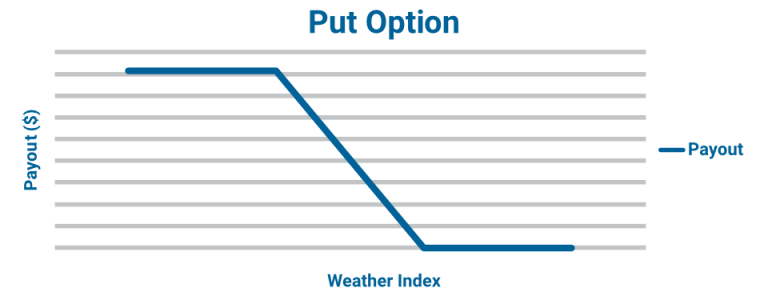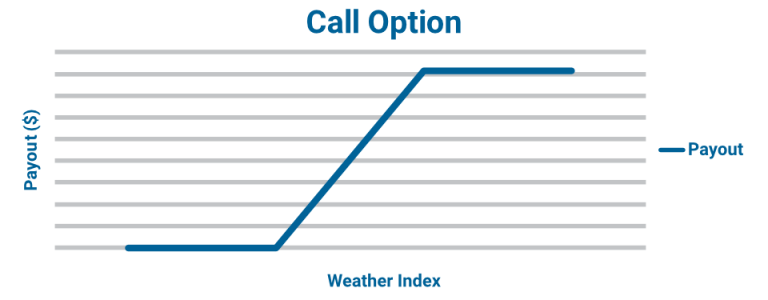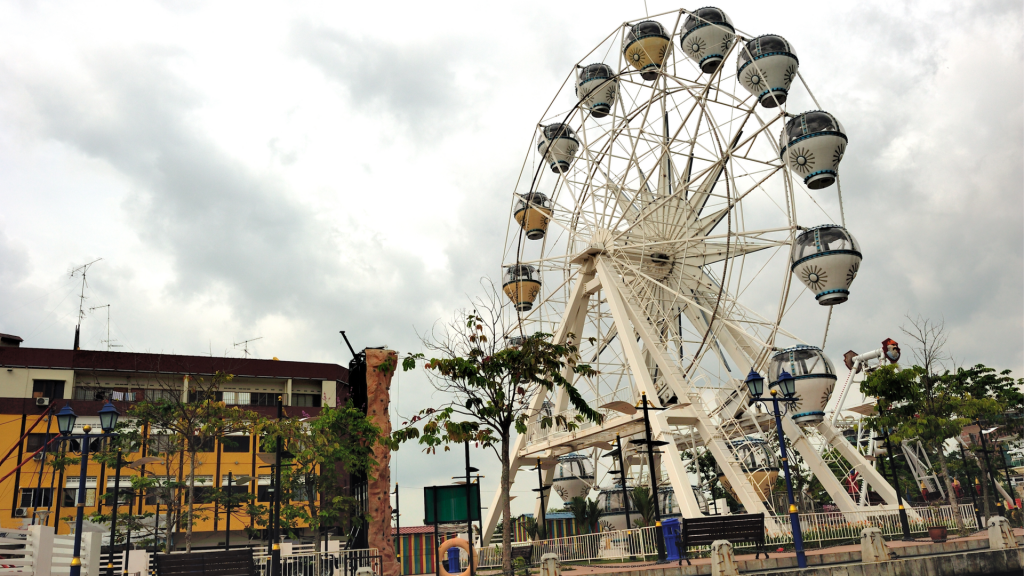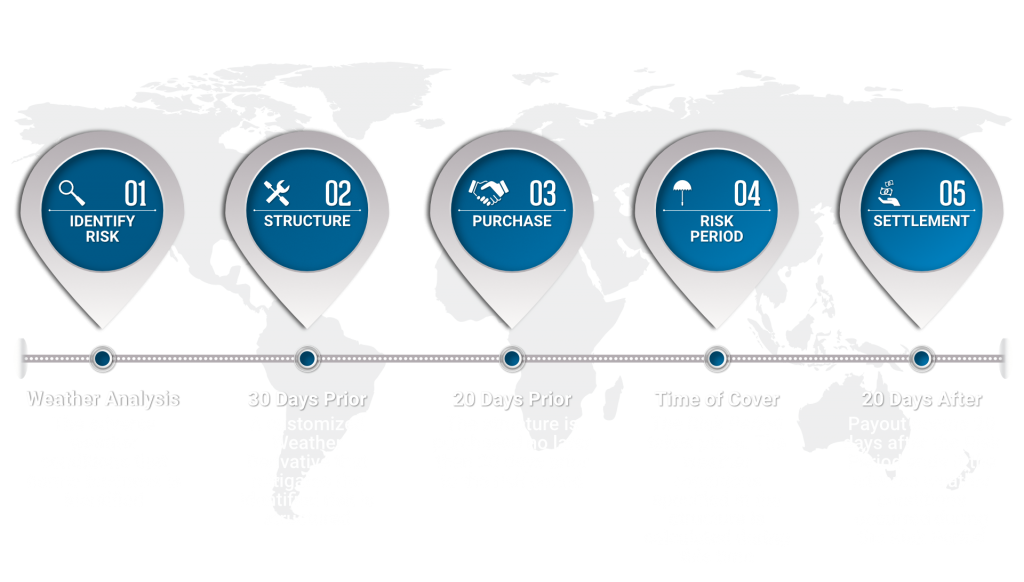Weather Derivatives (also known as “certificates”, “options”, or “guarantees”) are financial contracts that reduce the risk of weather-related losses.
First, the buyer requests a customized structure that pays relative to their weather risk. Then the seller offers a price that reflects the chance of the structure paying the buyer.
If the defined weather condition occurs, then the weather derivative pays the buyer. However, the seller profits from selling the contract if the weather does not occur. And therefore, the seller becomes the bearer of the risk as the contract makes up for the buyer’s losses due to the weather.










